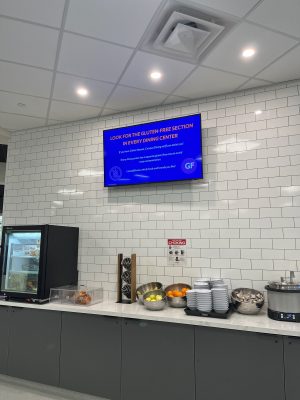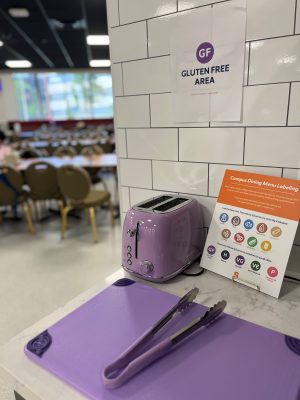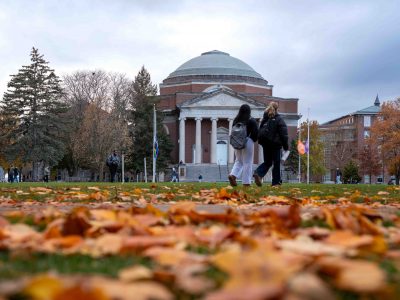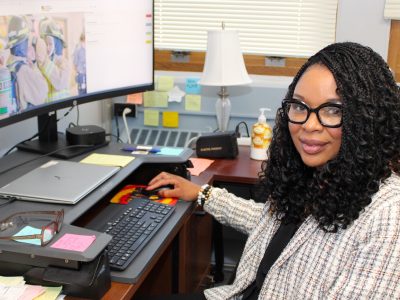Campus Dining Expands Gluten-Free Options, Introduces New Peer Ambassador Program
Food safety is always top-of-mind for Ashley Leone, MA, RD, CDN, CNSC, assistant director of nutrition management and Campus Dining’s registered dietitian. She trains staff and students in nutrition and food safety, assists with recipe creation, menu development, allergen and dietary food labeling, works one-on-one with students with food allergies and special dietary needs, and provides community education.
For Leone, a key point of emphasis coming into the 2024-25 school year was improving quality choices available for gluten-free students. She hosted a series of focus groups last year for students with gluten intolerances, and she field requests for more fresh, made-to-order, hot options in addition to grab-and-go mainstays.
The student feedback she gathered resulted in rethinking of gluten-free service in all six residential dining centers. Gluten-free students now have the option of requesting food made-to-order, which reduces the possibility of cross-contact and increases food freshness, taste and overall quality.
“Gluten-free food simply does not hold well and is much better when prepared fresh. Students told me again and again the gluten-free food prepared ahead of time just did not taste good, and unfortunately, we ended up regularly composting much of it. With this new process, we can offer fresh, made-to-order meals and significantly decrease food waste,” says Leone.

Leone is also excited to offer gluten-free students the opportunity to connect with a gluten-free student ambassador, a new peer-to-peer initiative that connects first-year gluten-free students with second or third-year students who are also gluten-free and have experiences in navigating food options both on- and off-campus.
“It can be hard figuring out where you can eat safely and who has the best gluten-free offerings in an urban university location that you are not familiar with,” says Leone. “This program closes the gap, providing students with great, first-hand knowledge, a readily available personal resource, and hopefully, a new friend on campus!”
Just as in previous years, students with allergies and/or dietary restrictions can reach out to Leone or any member of the dining center leadership teams to request specific products or meals that they enjoy at home.
“Campus Dining will continue to build this program to meet the evolving needs for gluten-free food on campus,” says Leone. “Being gluten-free myself, I empathize with students and understand the importance of having a variety of safe and delicious options.”



